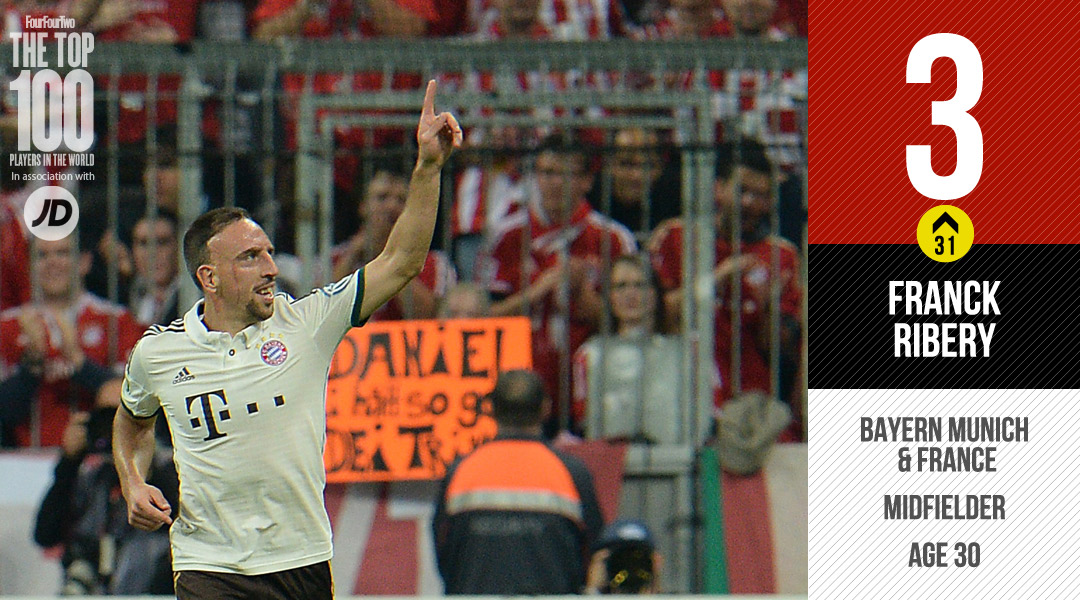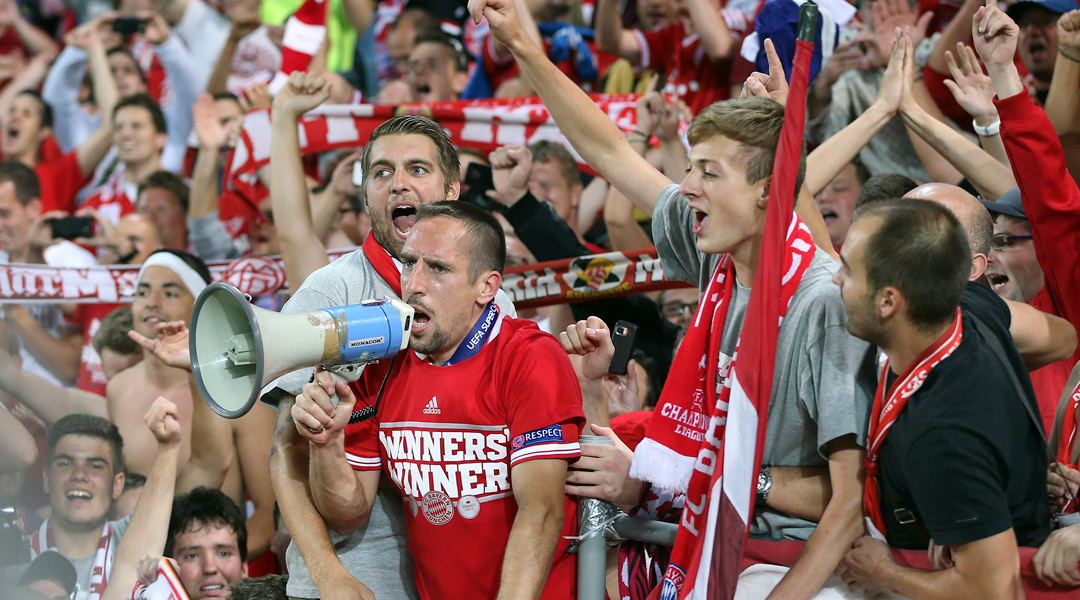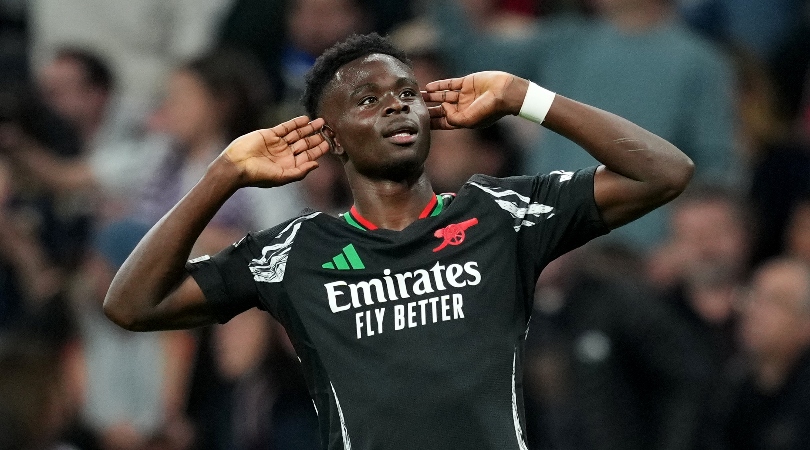Bid farewell to 2013: The year Ribery finally came of age
Joe Brewin reflects on the blossoming of a Bavarian hero - FFT's No.3 in our Top 100...

Picture Cristiano Ronaldo and Lionel Messi at the age of 20. Picture the former, that Portuguese preener with step-overs to spare, who’d already made 74 appearances for Manchester United. Picture Messi on his way to becoming the world’s best four years running, netting a brace for Argentina three weeks before leaving teendom behind.
At that age, Franck Ribery was working on a building site with his father. Forced out of bankrupt French third-tier side Olympique Alès, it was the only way to pay the bills. It was, he said, “a learning experience [...] I did all the digging, putting in lines, making holes and closing them – everything.”
If only things had been simpler for the 30-year-old. But then again, had they been, it’s unlikely he would ever be close to the player adored wherever he sets foot in Munich.
Amid a collection of geniuses last season he stood out in Bayern’s impeccable treble-winning campaign, combining style with guile and an insatiable worth ethic that endeared him to all at the Allianz Arena. The adulation is nothing new in Munich, but it's only now that the wider world has finally taken notice.
King of Europe
There are those who still refuse to recognise the French wingman as a competitor to the Big Two, but there is little else he can do to stake his claim for January’s Ballon d’Or. He’s unlikely to walk away with the grand prize – our No.1 Ronaldo would be a rightful winner – but his influence in a side so dominant in Europe is impossible to ignore.
Just ask the 36 journalists who crowned Ribery Europe’s best player last season by a landslide. In context, Messi picked up 14 votes, Ronaldo just three.
Get FourFourTwo Newsletter
The best features, fun and footballing quizzes, straight to your inbox every week.
Ribery can’t compete with his more illustrious, explosive opponents when it comes to the raw statistics. Last season Bayern’s terrace hero netted 11 goals and grabbed 14 assists, while Messi and Ronaldo bagged 60 and 55 respectively in their obscene La Liga goal battle.
But there is so much more than meets the eye with this flawed genius. In Bavaria Ribery is king, a man of the people. He’s the imperfect ruffian and blue-collared scoundrel from the poor northern French suburb of Boulogne-sur-Mer – and Bayern fans love it all.
That was illustrated no better than in the aftermath of Bayern's Super Cup win over Chelsea when Ribery, joining the club's supporters with megaphone in hand, orchestrated the post-match party.

But acceptance has been a long time coming, and is still yet to truly arrive back in his homeland. In France he is not loved as he is in Bavaria but the blemished scally with a murky past; a nightclub brawl while at Metz, his three-match ban after France’s farcical 2010 World Cup row, and those damaging allegations of underage prostitution to name but a few of his lower moments.
Ribery has made things difficult for himself at times, that much is true, but his rise from street scuffler to prized prince is nothing short of miraculous. It wasn’t until his move to Ligue 1 in 2004 that anybody even took notice. Even then Metz only tolerated him for half a season before nudging him out the door to Galatasaray, who were only too happy to accommodate the fiery Frenchman.
The horrific car accident that permanently scarred his face aged two has been a sensitive subject since childhood, but Ribery has learned to live with pride. “It gave me strength and forged my character," he said. "You have to be mentally strong to withstand the ridicule of other children and the stares of adults."
September’s cover of France Football depicted Ribery halved in the shirts of France and Bayern, his back to the former and trademark grin accompanying the latter. “He has benefited from his favourable image in Germany, than the one he has always suffered with,” reads the magazine’s tagline.
All grown up
But there is another side to Ribery that has reared its head since his move to the Bundesliga six years ago – that of fun-loving prankster, and even custodial team-mate. "As a young player Franck looked after me,” revealed left-back David Alaba earlier this year.
“It was he who said 'come here my boy'. He looked out for me both on and off the pitch. As I lived in the boarding school, he often picked me up and we went out for dinner.”
In short, Ribery has matured – and not just off the pitch: note his brilliant defensive displays as Bayern dissected Barcelona in the Champions League last season.
His popularity in the dressing room, then, comes as no surprise. He, like club stalwarts Philipp Lahm and Bastian Schweinsteiger, lives and breathes Bayern in a way the likes of Arjen Robben will never know. That’s not to say the Dutchman doesn’t care – he does – but the former Chelsea winger will be forever unable to connect with Die Bayern like his revered team-mate.
“I already know that the Bayern fans love me and they show me just that day after day," Ribery told RTL in reply to Real Madrid fans donning Ronaldo masks in support of their talisman’s Ballon d’Or campaign last week.
But win it or not, it doesn’t really matter – after years of struggle the wing wizard finally has the recognition he deserves. He might never be France’s favourite son, but in his adopted homeland there’s no doubting this rough diamond is now the polished jewel in Bayern’s glittering crown.
So all rise, and salute the year where Franck Ribery truly came of age.
Joe was the Deputy Editor at FourFourTwo until 2022, having risen through the FFT academy and been on the brand since 2013 in various capacities.
By weekend and frustrating midweek night he is a Leicester City fan, and in 2020 co-wrote the autobiography of former Foxes winger Matt Piper – subsequently listed for both the Telegraph and William Hill Sports Book of the Year awards.

